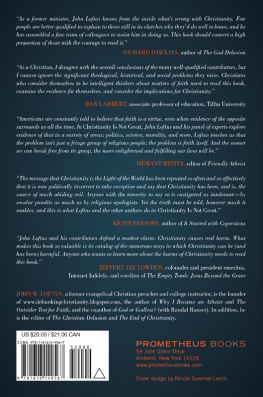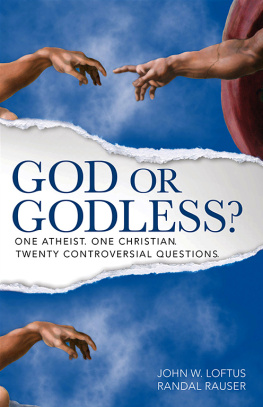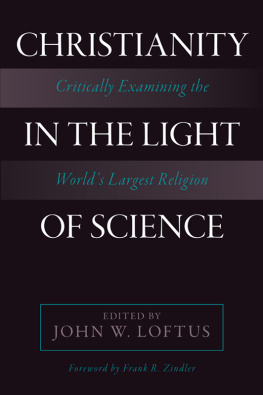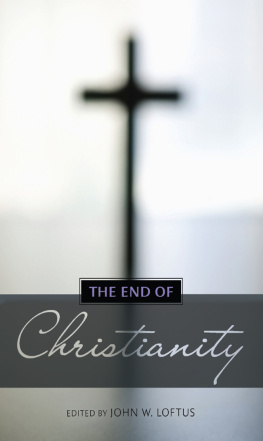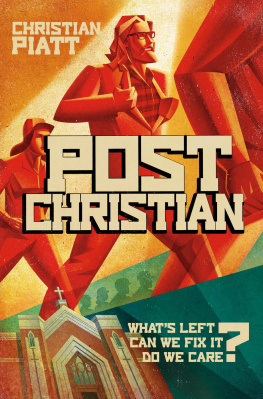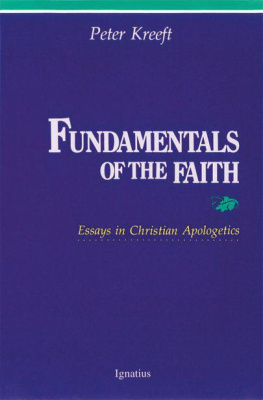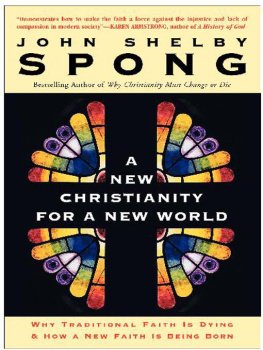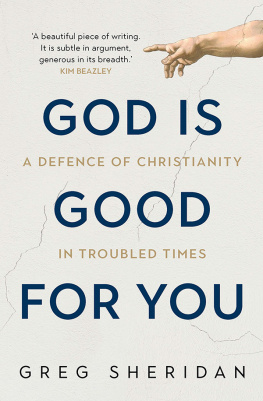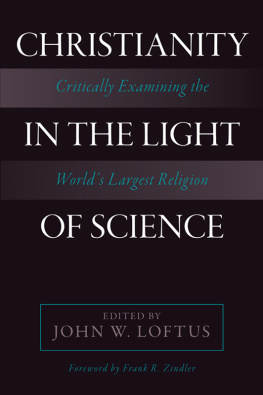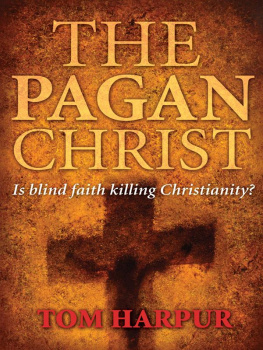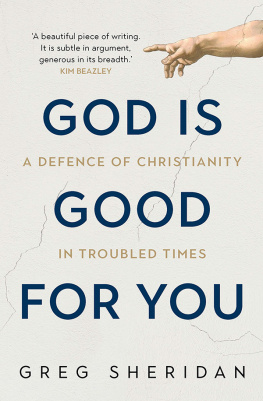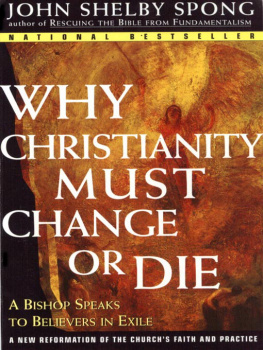
John W. Loftus
Even in as big a book as this one is, we could not have chapters on all the harms of Christianity. Nor could we include chapters on many of the other relevant issues having to do with the topic of this book. So in what follows I'll briefly address seven of these important issues. I'll do so by using a question-and-answer format leading up to the biggest question readers of this book will want answered: What do we hope to show by publishing it?
(1) What is it about religion that instigates violence like nothing else?
Jack David Eller has created what I consider essential reading when it comes to religion and violence in his book Cruel Creeds, Virtuous Violence: Religious Violence across Culture and History. Those that allow people to think of themselves as being under threat, or to see the world as a battleground, or to desire a perfect world devoid of any trace of evil can instill violence.
Eller argues that these six independent conditions for violence against the out-group converge on a single point. Increasingly they provide the grounds for the lack of empathy toward other people. Empathy, or feeling the pain of others, is a powerful restraint against violence. But when it is not there one of the most powerful restraints against violence has been withdrawn. And evidence suggests that a lack of empathy is a highly dangerous thing.
A person does not have to be a sociopath to feel good about causing harm and sufferingor to feel little or nothing at all about it. Rather what we have discovered is that a human needs only a belief system that teaches that he or she is acting for a good reason (even a higher cause), under someone else's authority, as a member of a (threatened) group, in pursuit of interests. Along the way, if the individual can learn, by way of gradual escalation, to commit violence against someone who is worth lessor completely worthless, less than a human beingthen violence becomes not only possible but likely, if not certain.
Although political movements can satisfy all six of these conditions, when it comes to religion, or a certain kind of religion, Eller claims that no other form of human organization and mobilization is so shaped by its ideology.
(2) Is religious violence worse than other kinds of violence?
Hector Avalos has also written what I consider essential reading about religious violence, using examples from the three Abrahamic monotheismsChristianity, Judaism, and Islam. In his book Fighting Words: The Origins of Religious Violence he doesn't claim religion is the root of all violence, since people, for religious motives or not, fight over what they consider scarce resources. They fight over many things other than religion, like food, shelter, money, and property. It's just that religion manufactures scarce resources to fight over (such as divine salvation) that are not really scarce, since they don't exist. His thesis is that religions are prone to violence because unlike many non-religious sources of conflict, religious conflict relies solely on resources whose scarcity is wholly manufactured by, or reliant on, unverifiable premises. His argument is this:
(1) Most violence is due to scare resources, real or perceived. Whenever people perceive that there is not enough of something they value, conflict may ensue to maintain or acquire that resource. This can range from love in a family to oil on a global scale.
(2) When religion causes violence, it often does so because it has created new scarce resources.
Avalos has discovered from a careful analysis of the fundamental texts of the three Abrahamic religions how four scarce resources have figured repeatedly in creating religious violence among them: sacred space (churches, temples, holy cities), the creation of holy scriptures (exclusive revelations), group privilege (chosen people, the predestined select few), and salvation (only our faith saves us). Since there is no verifiable sacred space, or holy scriptures, or group privileges, or exclusive salvation, believers in the three Abrahamic religions have been killing each other for nothing. We fight over everything it seems, but by taking these religions out of the mix we would have fewer things to fight about.
If you want to see Avalos's thesis illustrated in the City of Jerusalem you need only look as far as Simon Sebag Montefiore's book Jerusalem: The Biography. wrote of his book:
The amount of murder, massacre, etc. for 2,000 years is appalling. Religious madness is the theme. Christians murdering Jews and being murdered and both murdering Muslims and being murdered in their turn. WHY? Because Christ was crucified here, Abraham was willing to sacrifice Isaac here, and Mohammed rode a horse with a human face aerially around the city, receiving insights as he went. So the murders and massacres are about the places where religious events are believed to have taken place.
This leads to Avalos's main argument. In his words:
Although we focus on how scarce resources cause religious violence, an overarching theme of our thesis is that the lack of verifiability in religious belief differentiates ethically the violence attributed to religion from the violence attributed to non-religious factors. This distinction will lead to our main argument, which is that religious violence is always ethically reprehensible, while the same cannot be said of nonreligious violence. We argue that the quality of the scarcity created by religion is fundamentally different: If any acts of violence caused by actual scarcities are judged as immoral, then acts of violence caused by resources that are not actually scare should be judged as even more immoral. We further develop the argument that any
Atheist author Greta Christina is a great writer. She has encapsulated for many of us why we argue against the Christian faith in her book Why Are You Atheists So Angry? 99 Things That Piss Off the Godless. Maybe angry is too strong a word for some of us, but most of us are appalled, disgusted, dismayed, sickened, and even horrified by what we have seen in the world, especially coming from the Christian religious right. In an online essay Christina discusses the problem of religious faith, which amplifies what both Eller and Avalos have argued:
Why is religion specialand specially troubling? What makes religion different from any other ideology, community, system of morality, hypothesis about how the world works? And why does that difference makes it uniquely prone to cause damage?
I'm realizing that everything I've ever written about religion's harm boils down to one thing. It's this: Religion is ultimately dependent on belief in invisible beings, inaudible voices, intangible entities, undetectable forces, and events and judgments that happen after we die.
It therefore has no reality check.
And it is therefore uniquely armored against criticism, questioning, and self- correction. It is uniquely armored against anything that might stop it from spinning into extreme absurdity, extreme denial of realityand extreme, grotesque immorality.
The thing that uniquely defines religion, the thing that sets it apart from every other ideology or hypothesis or social network, is the belief in unverifiable supernatural entities. Of course it has other elementscommunity, charity, philosophy, inspiration for art, etc. But those things exist in the secular world, too. They're not specific to religion. The thing that uniquely defines religion is belief in supernatural entities. Without that belief, it's not religion.
And with that belief, the capacity for religion to do harm gets cranked up to an alarmingly high levelbecause there's no reality check.
Next page
